Hier volgt een overzicht van de geschiedenis van de de studie en de vereniging. Hierbij is gebruik gemaakt van onze (lustrum)almanakken en verschillende interviews met prof. Hans Lyklema (één van de oprichters van de studie).
| 1876 | Oprichting nationale landbouwschool te Wageningen. Vanaf 1896 genoemd Hoogere Land- en Boschbouwschool en vanaf 1904 genoemd Rijks Hoogere Land-, Tuin- en Boschbouwschool | |
| 1918 | Oprichting Rijks Landbouw Hooge school te Wageningen. | |
| 1967 | prof. Dr. Den Hartog (oud-hoogleraar in de organische chemie te Wageningen) bezoekt prof. Dr. Clark (hoogleraar organische chemie aan Warwick University ) en hoort voor het eerst zijn theorieën over een nieuw vakgebied: ‘The School of Molecular Sciences’. De koppeling tussen de chemie en fysica/biologie was op dat moment niet vanzelfsprekend: Waar fysici (en chemici) in sterk vereenvoudigde modelsystemen werken, zijn biologen meer bezig met ‘echte levende stof’. Volgens biologen zijn de vereenvoudigde modellen niet toegestaan omdat ze het systeem niet goed genoeg beschrijven: te veel details worden weggelaten en het is onmogelijk te achterhalen wat dit met de echte systemen doet. | |
| 29 mei 1967 | Bijeenkomst prof. Dr. Den Hartog, prof. Lyklema, prof. Van der Plas en prof. Veeger te Wageningen. Onder het genot van een kopje koffie werd het idee voor een studie Moleculaire Wetenschappen besproken. | |
| december 1967 | Indiening en directe aanname van voorstel tot oprichten van de studie Moleculaire Wetenschappen. De senaatscommissie ‘Moleculaire Wetenschap’ onder leiding van prof. Hellinga en secretaris prof. Lyklema wordt opgericht. | |
| december 1969 | Het voorstel tot oprichting van de studie Moleculaire Levenswetenschappen ingediend door de commissie ‘Moleculaire Wetenschap’ onder leiding van prof. Den Hartog en de secretaris prof. De Veeger wordt definitief aangenomen. | |
| 8 juli 1970 | Akkoord van de Minister van Landbouw Lardinois voor oprichting van de studie. | |
| 1970-1971 | Eerste collegejaar van Moleculaire Wetenschappen met negen nieuwe studenten. Afstudeerrichtingen: chemisch en een chemisch-biologisch. | |
| 1970 | Oprichting studievereniging Luukelom. Brengt de ‘Apolaire Binding’ uit, organiseert later ook lezingen en excursies. Draagt zorg voor de studenten in de richtingsgroep (soort Opleidingscommissie). Er wordt later begonnen met de organisatie van een richtingsweekend. | |
| 1975 | Gegroeid tot 35 studenten per jaar. Nu ook chemisch-fysische afstudeerrichting. | |
| 1980 | Afstudeerrichting Biotechnologie geïntroduceerd. | |
| 1982 | Explosieve groei. | |
| 1986 | Naamsverandering universiteit naar Landbouw Universiteit. | |
| 1990 | 90 eerstejaars. | |
| 1992 | Afsplitsing van de specialisatie biotechnologie als de aparte studie Bioprocestechnologie. Hierdoor daalt het aantal eerstejaars van Moleculaire Wetenschappen naar 20 a 30 studenten per jaar. | |
| 1992 | Doorstart van de vereniging onder de naam M.S.V. Geen Flauwekuul. Er werd voor deze naam gekozen om te laten zien dat de vereniging wat minder serieus te werk zou gaan: humor en ludieke activiteiten zouden de boventoon gaan voeren, en vooral gezelligheid moest zorgen dat de vereniging weer actief werd. De naam van de Apolaire Binding veranderde in het Ridikuultje, afgekort het Kuultje. | |
| 1998 | Naamsverandering naar het professioneler ogende M.S.V. Alchimica en presentatie van het logo. De naam van het Kuultje werd veranderd in de Periodica Alchimica. | |
| 1998 | De leerstoelgroepen Bio-anorganische chemie en Moleculaire genetica worden opgegeven en de leerstoelgroepen Fysisch-organische chemie en Bio-organische chemie moeten fuseren i.v.m. bezuinigingen. | |
| 1999 | Naamsverandering naar Wageningen University als onderdeel van Wageningen University and Research centre. | |
| 1 september 2007 | Naamsverandering studie naar Moleculaire Levenswetenschappen | |
| 2013 | Afscheid van ’t Hok, de verenigingsruimte in het Transitorium, op de Dreijen en verhuizing naar Ad Hok op de vijfde verdieping van het Forum op de nieuwe campus. Momenteel beginnen 50 à 60 studenten per jaar aan de bachelor. | |
| 2015 | Voor het eerst sinds 1990 en de afsplitsing van biotechnologie in 1992 zijn er weer 90 aanmeldingen voor het eerste jaar! Tevens dit jaar een zeer geslaagd negende lustrum der MSV Alchimica met als thema ‘Back to your roots’. | |
| 2017 | Vanwege de grote animo voor de opleiding is er nu een decentrale selectie voor eerstejaars studenten. De numerus fixus is ingesteld op 100 startende studenten. Dit wordt gedaan om de kwaliteit van de opleiding te waarborgen. | |
| 2019 | Door sterke afname van studentenaantal is de decentrale selectie voor eerstejaars studenten teruggetrokken. |
The following is a time line of the course and student course union. Reference points were (lustrum) almanacs and various interviews with Prof. Hans Lyklema (one of the founders of the course Molecular Life Sciences).
| 1876 | Foundation of Rijkslandbouwhogeschool te Wageningen. | |
| 1918 | Foundation of Landbouw Hogeschool te Wageningen. | |
| 1967 | Prof. Dr. Den Hartog (previous professor of organic chemistry at Wageningen) visits prof. Dr. Clark (professor in organic chemistry at Warwick University) and first learns of his theories for a new subject area: ‘The School of Molecular Sciences’. At this point in time a combination of chemistry/physics and biology was not considered: Physicists and chemists worked with model systems and simplified systems, biologists worked with living subjects. The biologists considered the simplified models insufficient in describing a living system as too many details were omitted, and it would be impossible to discover what the effect of these omissions of the system would be. | |
| 29 mei 1967 | Meeting between prof. Dr. Den Hartog, prof. Lyklema, prof. Van der Plas en prof. Veeger in Wageningen where the idea of a course Molecular Sciences was discussed over a cup of coffee. | |
| december 1967 | Submission an immediate acceptation of a proposal to establish the course Molecular Sciences. The senate committee ‘Molecular Sciences’, under leadership of prof. Hellinga and clerk prof. Lyklema was established. | |
| december 1969 | The proposal for the establishing of the course Molecular sciences is submitted by the ‘Molecular Sciences’ committee, under leadership of prof. Hellinga and clerk prof. Lyklema, and definitively approved. | |
| 8 juli 1970 | The Minister of Agriculture Lardinois agrees to the establishment of the course. | |
| 1970-1971 | The first academic year of Molecular Sciences with nine new students. Graduation specialisations are chemistry and chemical-biology. | |
| 1970 | Foundation of student course union Luukelom. They publish ‘Apolar Binding’, and later also organise seminars and excursions. Is responsible for the course students and later starts planning a course weekend. | |
| 1975 | The course has grown to 35 students per year. New graduation specialisation in chemical-physics. | |
| 1980 | Graduation specialisation Biotechnology introduced. | |
| 1982 | Explosive growth. | |
| 1986 | University name change to Landbouw Universiteit. | |
| 1990 | 90 first year students. | |
| 1992 | The specialisation biotechnology splits from Molecular Sciences to become a new course, Bioprocesstechnology. The number of first year students for Molecular Sciences decreases to some 20, 30, students per year. | |
| 1992 | Restart of the course union under the new name M.S.V. Geen Flauwekuul (No Nonsense, in Dutch “nonsense” has a play on words with “molecule”). The new name was chosen to show the union would be less serious – humour and ludic activities would have priority, and ‘gezelligheid’ would ensure the life of the union. The name of the newsletter, Apolar Binding was also changed to het Ridikuultje (the Ridicule, again with a play on words with molecule), shortened to het Kuultje. | |
| 1998 | Another change in the union name, now to the more professional M.S.V. Alchimica, and the new logo was also revealed. Het Kuultje was changed to the Periodica Alchimica. | |
| 1998 | The chair groups Bio-anorganic chemistry and Molecular genetics were shut down and chair groups Physical organic chemistry and Bio-organic chemistry fused due to financial cut backs. | |
| 1999 | The name of the university is changed to Wageningen University, as part of Wageningen University and Research centre. | |
| 1 september 2007 | The course name is changed to Molecular Life Sciences. | |
| 2013 | The union says goodbye to the association common room ’t Hok in the Transitorium on de Dreijen and moves to Ad Hok on the fifth floor of the Forum on the new campus. An average of 50 to 60 students starts studying BSc MLW each year. | |
| 2015 | For the first time since 1990, when Biotechnology split from MLW, there are 90 applications for BSc Molecular Life Sciences. It is also the 9th lustrum of M.S.V. Alchimica, the theme being ‘Back to your roots’. |

